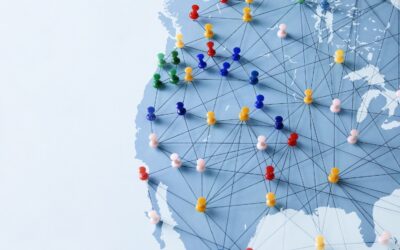By Rob Love, President/CEO
Our company has been involved in helping communities with diversity initiatives for about 10 years now, and the field has certainly come a long way. That said, the senior living field still has much further to go, and the need for a strong diversity, equity and inclusion (DEI) initiative is more important now than ever.
Diversity Research Initiatives
Our first involvement with diversity initiatives began in the mid 2010s with several Quaker communities that specifically wanted to target marketing efforts toward African Americans. This process raised more questions than it brought answers, so in 2017 we conducted proprietary research into diversity in senior living communities, with the end report delivered to the field in the summer of 2018.
The conclusion reached by this research was pretty straightforward: Focusing on increasing the diversity of residents was basically the last thing communities should be doing. Instead, communities needed first to implement strong DEI programs throughout the community by starting at the top (board and senior leadership need to reflect diversity for any organization-wide diversity initiatives to be considered credible), and then moving to middle management and staff levels. Without a strong DEI culture in a community, it simply was not going to appeal to many prospects of color, though many communities have been successful in attracting LGBTQ residents.
E + I = B … → D
As our work in this area continued, I realized that starting any conversation with a focus on diversity was essentially backward. Increased diversity is an outcome of building strong equity and inclusion programs. This led me to develop the idea of representing this in somewhat of a formula: E + I = B … → D. (I admit I am a bit mathematically oriented.)
 Stated simply, this formula means that a strong Equity and Inclusion program will lead to a strong sense of Belonging, which will then lead to increased Diversity. If we can develop a culture where any person of any color, sexual orientation or gender identity (or disability, or any other factor) feels they are treated equitably and inclusively, they will feel a sense of belonging in that organization and culture. And when they feel they belong, they will tell their friends and invite them to be a part of the community, whether as an employee or a resident.
Stated simply, this formula means that a strong Equity and Inclusion program will lead to a strong sense of Belonging, which will then lead to increased Diversity. If we can develop a culture where any person of any color, sexual orientation or gender identity (or disability, or any other factor) feels they are treated equitably and inclusively, they will feel a sense of belonging in that organization and culture. And when they feel they belong, they will tell their friends and invite them to be a part of the community, whether as an employee or a resident.
Why This Is More Important Now Than Ever
We all know how challenging staffing has become for our communities and our field. Today, workers have many more job options, and our wages have gone up considerably. In a recent Love & Company webinar on things to focus on in 2023, Jonathan Cook, CEO of LifeSpire of Virginia, shared that his organization’s payroll costs have increased by more than 30 percent over the past three years, and all of its staffing issues haven’t been solved (though it is in better shape than many). And that’s the bottom line: We won’t solve our staffing challenges simply by paying more. We need to be a place where people WANT to work, as well as pay competitive wages.
And that’s where DEI (and B!) programs come into play. If we can create a culture among our workers that enables everyone to feel welcome and appreciated—that they Belong!—we will benefit from stronger staff referrals to friends to join them in working for our communities. It will also give us a strong message to include in our talent acquisition programs (recruitment marketing) that truly positions our communities as employers of choice in our markets.
If you are already well down the DEI path and are experiencing the benefits of it in your staffing and in your community, please let me know. We’d love to share some success stories in future blogs.




